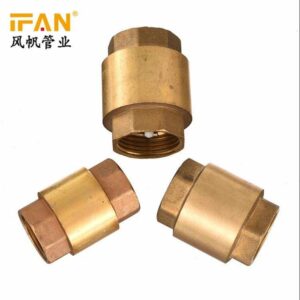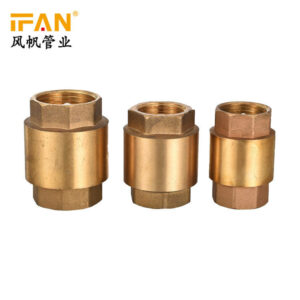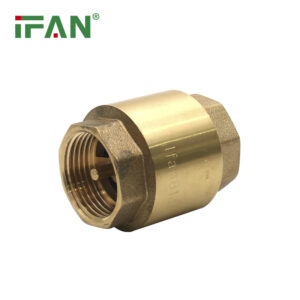Description
Application of Check Valves in the Water Treatment Industry: Ensuring Flow Control and System Integrity
Introduction:
Check valves, also known as non-return valves or one-way valves, play a vital role in the water treatment industry. These valves are designed to prevent the backflow of fluids within a pipeline system, ensuring the integrity of water treatment processes and protecting equipment from potential damage. This article delves into the application of check valves in the water treatment industry, highlighting their significance in maintaining water quality and system efficiency.
Importance Of Check Valves In Water Treatment:
Check valves are essential components in water treatment systems where maintaining the direction of flow is critical. They prevent the undesirable reversal of water flow, which could lead to cross-contamination, loss of treated water, and disruption of treatment processes. Check valves contribute to the overall efficiency and effectiveness of water treatment plants and distribution networks.

Protection Against Backflow:
In water treatment plants, various stages involve the movement of water through different treatment processes. Check valves are strategically placed at points where backflow could occur, such as pump discharge lines, distribution networks, and pipe junctions. By preventing the return of untreated or contaminated water, check valves safeguard the treated water’s purity.
Preventing Water Hammer And Pressure Surges:
Water treatment systems often experience sudden changes in flow rates, which can lead to water hammer and pressure surges. Check valves help mitigate these issues by allowing flow in one direction while preventing reverse flow, reducing the risk of hydraulic shocks that could damage pipes and equipment.

Application In Pumping Stations:
Pumping stations are integral to water treatment and distribution systems. Check valves installed at the outlet of pumps ensure that water flows in the desired direction, preventing pump damage caused by hydraulic shock when the pump stops suddenly. This enhances the longevity of pumps and minimizes maintenance needs.
Cross-Connection Control:
Check valves are crucial for preventing cross-connections between potable and non-potable water sources. In the water treatment industry, check valves act as barriers that prevent the contamination of treated water with raw water or other non-potable sources, ensuring the safety of the water supply.
Choosing The Right Check Valve:
The selection of the appropriate type of check valve depends on factors such as flow rate, pressure, fluid characteristics, and installation requirements. Swing check valves, ball check valves, and tilting disc check valves are common choices in water treatment systems, each suited for specific applications.
Conclusion:
Check valves are indispensable components in the water treatment industry, contributing to the protection of water quality, system integrity, and equipment longevity. By preventing backflow, water hammer, and cross-contamination, check valves play a crucial role in ensuring the efficiency, reliability, and safety of water treatment processes. Their application is paramount in maintaining the high standards expected in the water treatment industry while safeguarding public health and environmental well-being.
Related products
-
Brass Valve
IFAN Brass Check Valve
-
Check Valve
IFAN Plumbing Check Valve
-
Brass Valve
IFAN Brass Check Valve
-
Brass Valve
IFAN Non Return Valve











